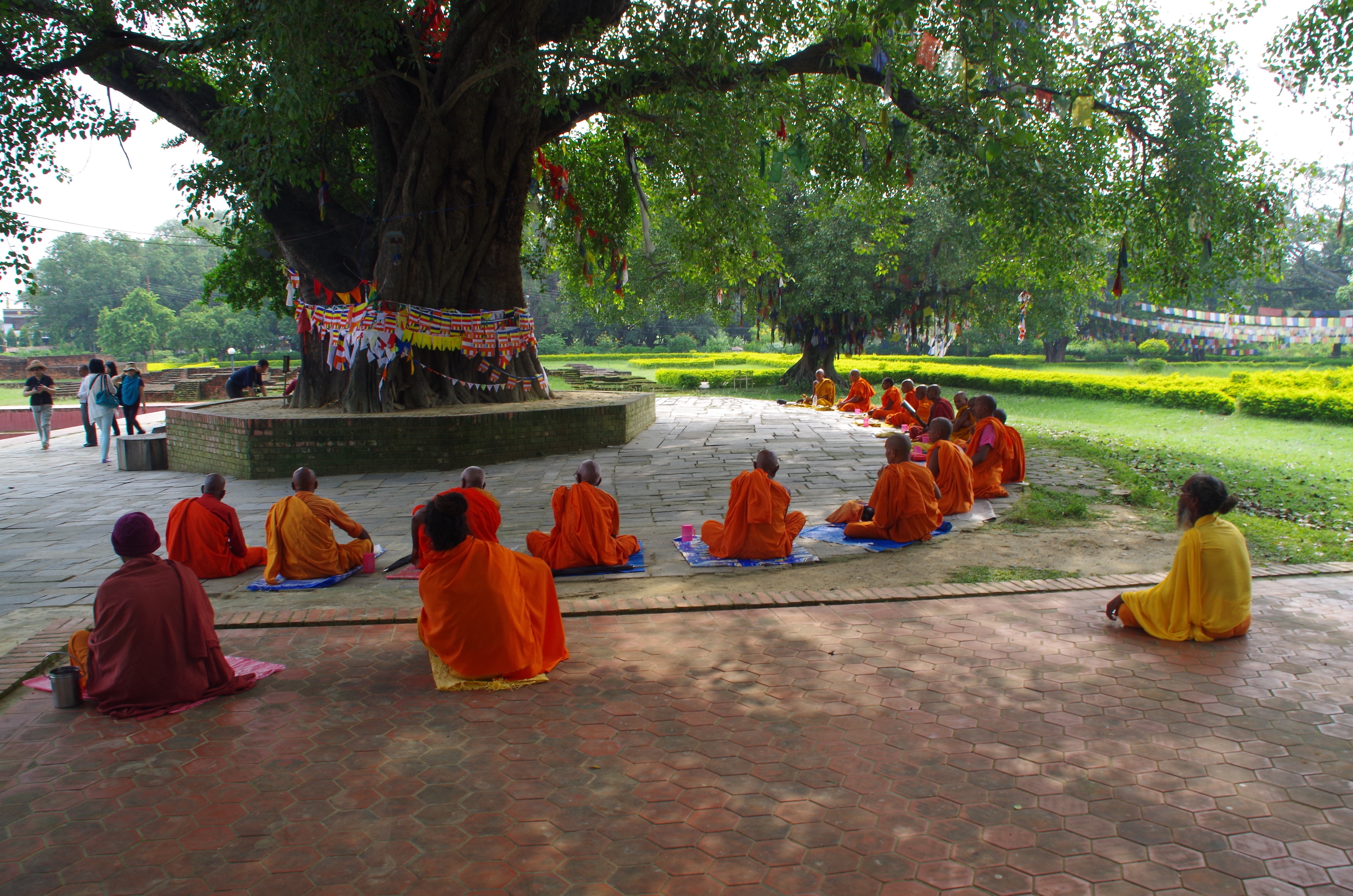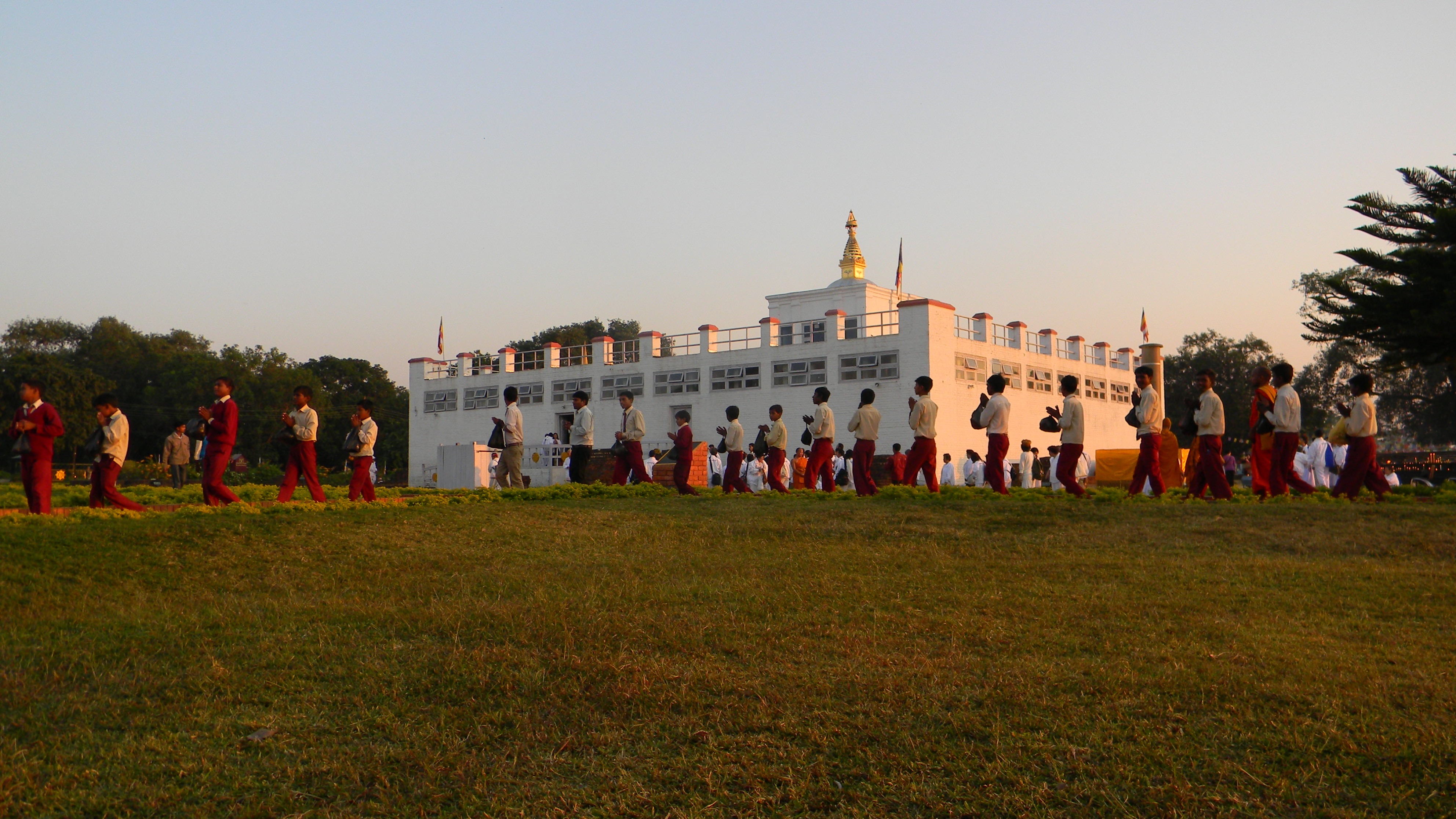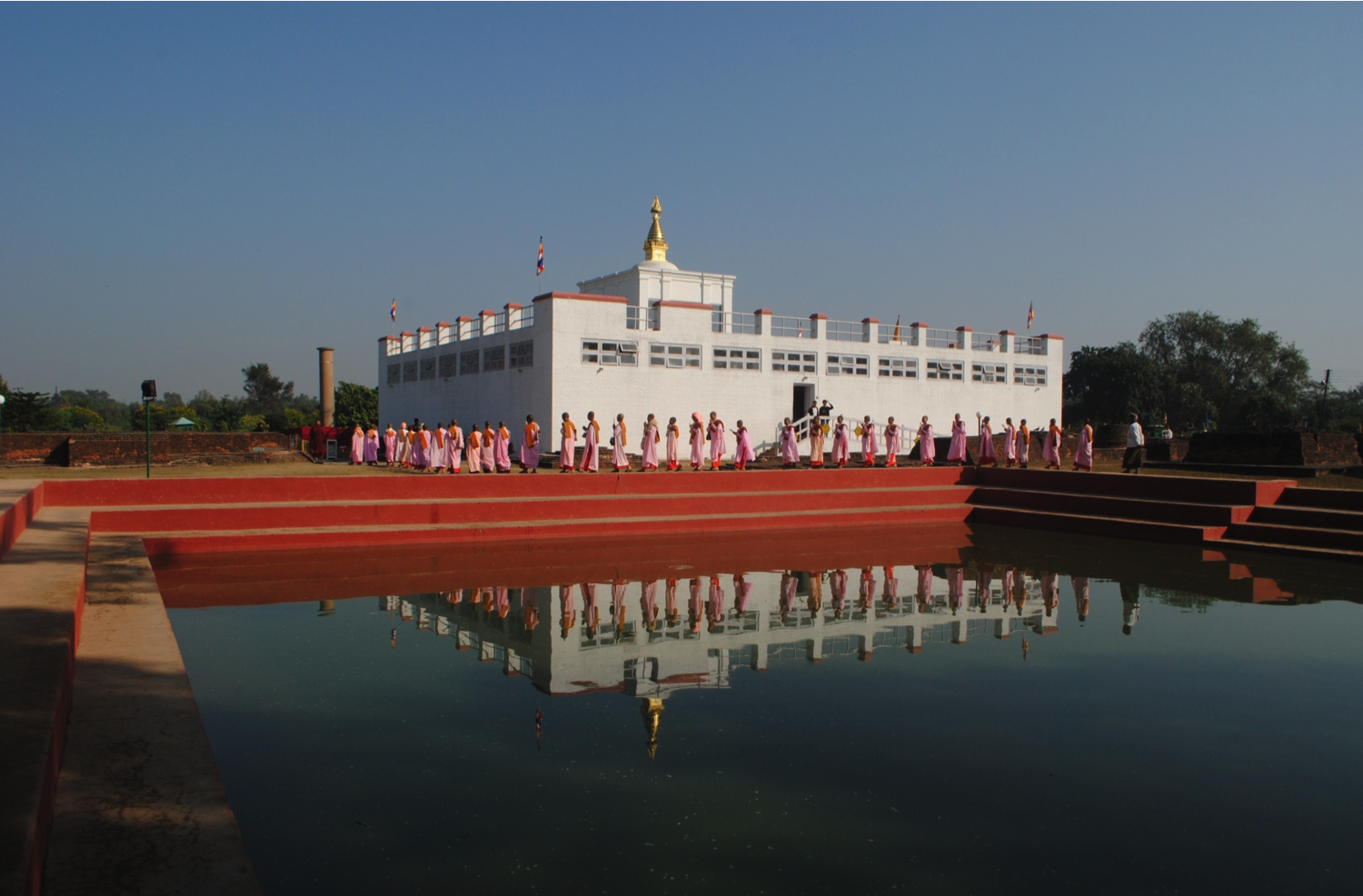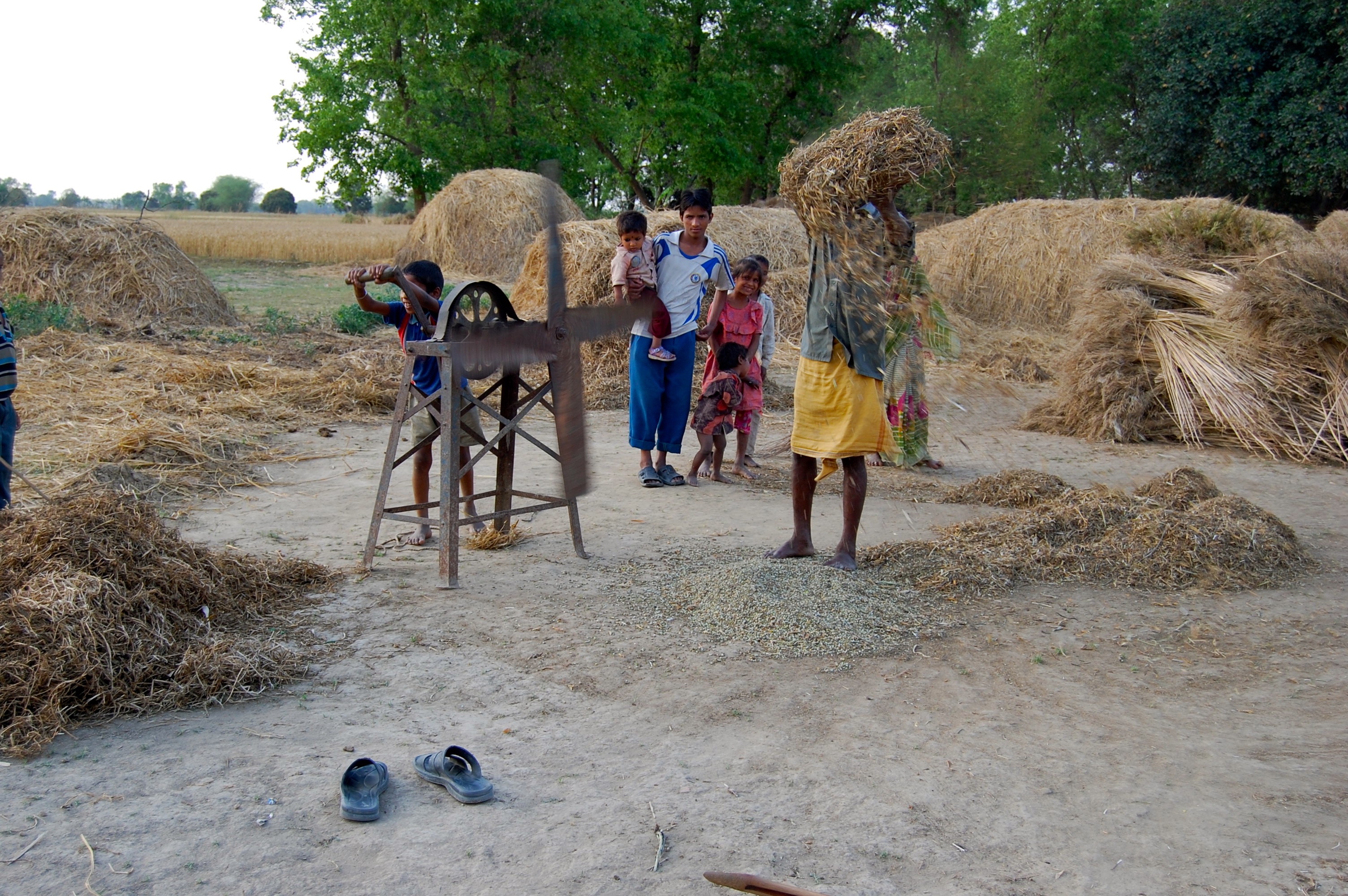ABOUT LUMBINI
Lumbini is located at the base of the Chure mountains in the Terai region of Nepal.
Also known as the Nepalese Prairies, rich alluvial soil washes down from the mountains to create a very fertile plain, giving the Terai region its reputation as the breadbasket of the country. Lumbini and Kapilavastu in particular are known for growing rice, lentils and wheat. Lumbini is therefore primarily an agrarian community, and the population is dependent on its crops for its sustenance and livelihood.
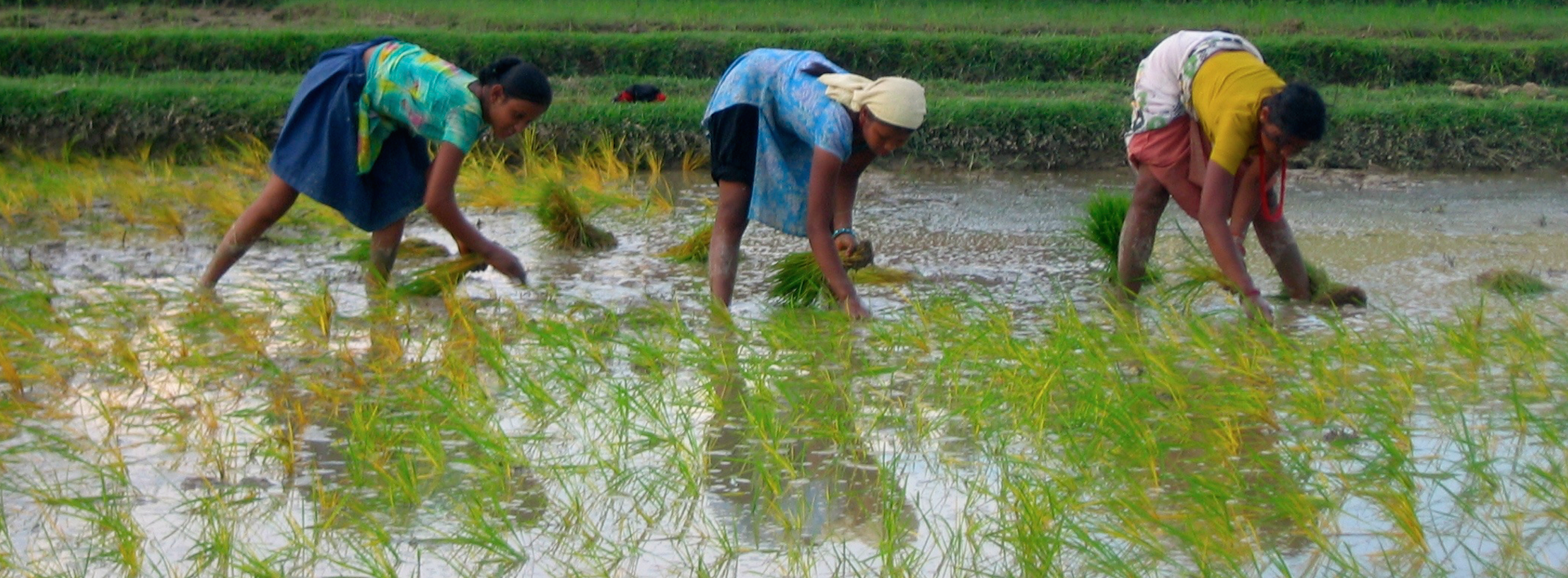
Despite having been given the gift of fertile land by nature, farmers here suffer greatly due to lack of adequate irrigation, farming technology, and relevant and timely agricultural information. The agricultural technology and methodology practiced here is very antiquated, and as a result, farmers are having great difficulty coping with changing global climate patterns. Their traditional knowledge of crops and their diseases are becoming obsolete as new diseases and new soil conditions are ongoing challenges. Since the region's dreaded Malaria was eradicated, there has also been a massive population boom in the region, and as the population in the villages is constantly growing, the land is being further divided and even lost to the creation of new settlements and industries.
ETHNIC AND RELIGIOUS DIVERSITY
Lumbini area has a great diversity of ethnicity.
Most of the native inhabitants of Lumbini area are known as Madehsis or Terai dwellers and they are of mixed ethnicity like Tharus, Bahun, Chettri, Yadav, Kohar, Lohar, Harijan, Kewat, Teli, etc… For the last 50 years, since Malaria has been brought under control, there has also been a great population migration into Lumbini from the mountains and from other neighboring regions.
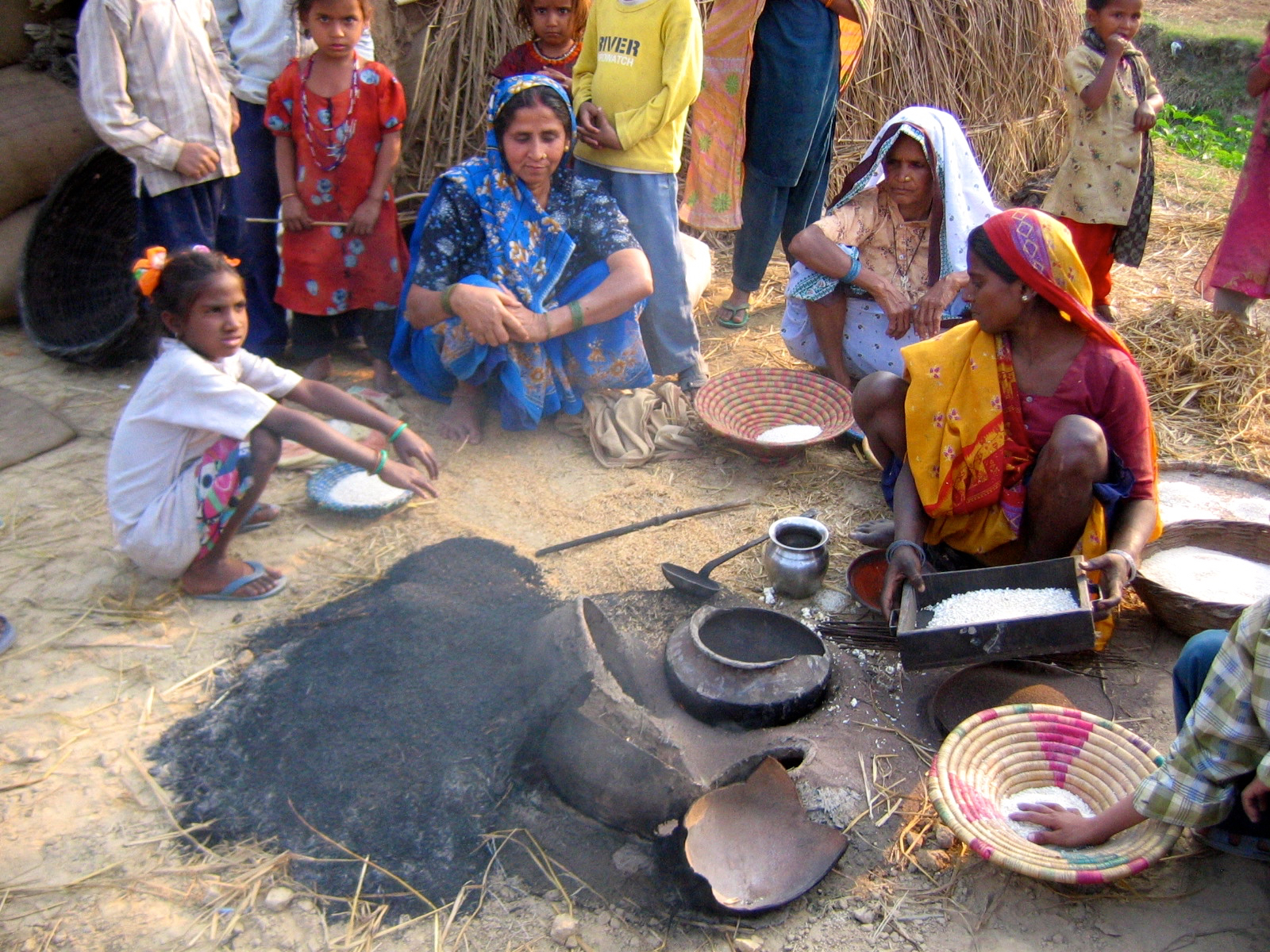
The majority of the population around Lumbini is Hindu, with a small population of Muslim communities mostly concentrated in the west of the region and in Kapilavastu district. Despite the vast cultural and ethnic diversity, there is a great sense of harmony in between various casts and social groups. Villagers help each other out in cultivating their farms and work together to share the rainwater and other resources. There is an exemplary harmony between the native Muslim and Hindu communities and they help each other to celebrate their cultural festivals and even exchange gifts.
NATURE
The rural communities of Lumbini believe in living in close harmony with nature and have great cultural reverence towards water, trees, and all life forms.

The native culture of Lumbini has deep reverence towards nature and promotes harmony with all natural elements. Rivers, trees, and farms are considered sacred. Nature is revered like a mother who sustains and nurtures her children, there are several festivals every year during which admiration and reverence towards natural elements are expressed through songs and offerings. There are yearly festivals like “Chatta” during which trees are worshiped by village mothers.
THE BIRTHPLACE OF THE BUDDHA
The native populations have high cultural respect towards the birthplace of the Buddha.
As their ancestral shrine, villagers have yearly ceremonies at “Rummendei Mai” or mother Rummendei, where they gather to celebrate the memory of Buddha’s mother Mayadevi. Despite a loss over time of historical knowledge about the Buddha and his teachings, the people of Lumbini have continued to gather in these sacred places to perform their rituals century after century after century.
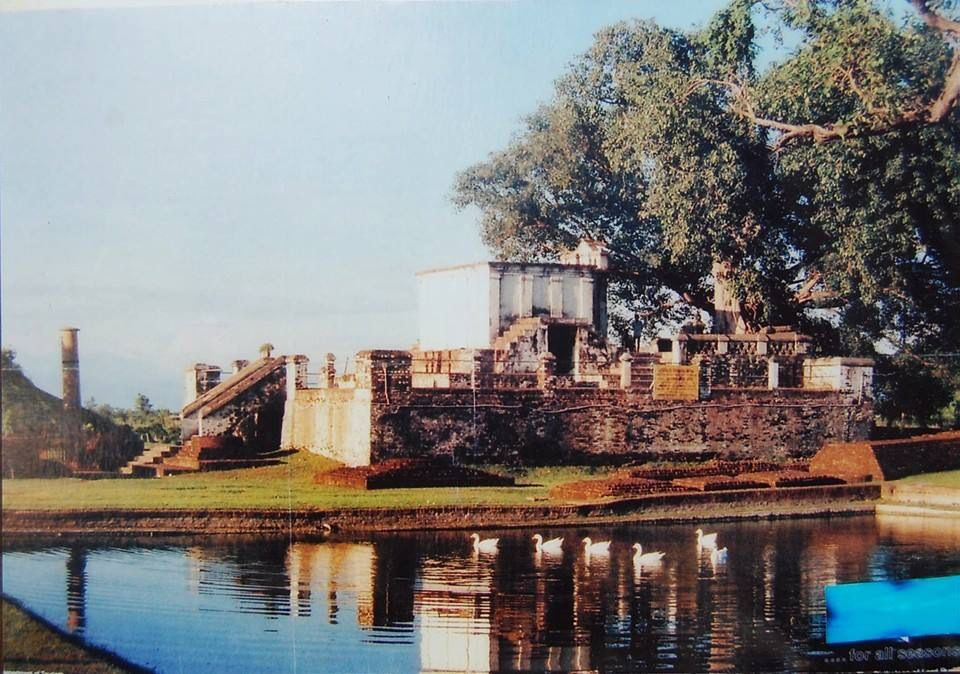
Read about
THE MASTERPLAN

